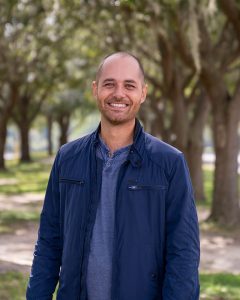Author, professor, and poet Clint Smith was invited to give a presentation at a conference on the topic of engaging people across racial and socioeconomic lines. He gave a powerful four-minute talk titled, “The Danger of Silence.” He encouraged the audience to speak up against ignorance and injustice. He stated, “Explore the silence of your own life, fill those spaces, name them, and share them.”[1] This is a powerful challenge to individuals that are privileged to inhabit the middle and upper class.
The bottom line is that a unified effort to care for the poor and marginalized will disturb the current balance of power in the American economy. This could be the most important disturbance our nation has ever encountered.
The privileged classes in American society have an opportunity to use their power, influence, and position to advocate for the cause of the poor. However, they must first realize that there is a very real problem.
As the hearts of God’s children are turned back to God himself, the love that he demands for his disciples to have for others will naturally lead to caring for the poor. Instead of fearing missteps or division, it is time for followers of Jesus to rise up and follow where he is – and has been – leading his disciples.
It is time for the Church to stand with those that have been marginalized by a capitalistic society that has systematically oppressed men, women, and children that were created in the image of God (Genesis 1:27).
The book of Acts is a fascinating picture of the early church in her infancy. Wildly growing and awkwardly expanding like a wildfire that could not be contained, the message of freedom in Jesus rapidly spread across the city of Jerusalem and beyond.
In these early days of the formation of the local church, a uniquely beautiful narrative began to form of genuine love, care, and concern for each other. Acts 2:44 gives a brief glimpse of the way that these disciples looked out for the good of each person in their community, regardless of race, class, or social standing. It states, “And all the believers met together in one place and shared everything they had. They sold their property and possessions and shared the money with those in need.”
This is a beautiful picture for the American church in the twenty-first century. Sharing does not simply mean that we care for those within our church community or social circles. This charge extends to those who are poor, marginalized, and feeling a unique sense of hopelessness that only can be understood living under the bondage of poverty.
Tavis Smiley and Cornel West give a compelling picture of a preferred future. They state, “If Americans cultivated a surplus of compassion, our children would not be without food, shelter, and quality health care.” They continue, “With a surplus of love, the untapped potential of our youth would not rot away in our nation’s prisons.”[2]
There must be an awakening for Christians to care about the very things that Jesus himself cared about and advocated for so fiercely in his time living among mankind on the earth. He walked with poor, talked with the poor, and shared his life with theirs. He laid down his life for the rich and the poor alike, and rose again to be the living Savior of all mankind, not just the Savior for a privileged few.
If the American church is going to continue to lift up the name of Jesus, it is time for them to begin lifting the arms of the poor.
The answers will not come easily, and mistakes will be made. However, the mistakes of people that are willing to engage across uncomfortable and awkward lines of racial and socioeconomic division are much more palatable than willfully ignoring the plight of our neighbors that are living in poverty.
Ronald Sider gives a challenging equation for the Church to explore as it relates to our engagement with the poor. He asks, “Is there the same balance and emphasis on justice for the poor and oppressed in our programs as there is in Scripture?”[3] The answer to this question could change the world. More importantly, the answer to this question could change the life of a person that is created in the image of God.
If you are interested in getting involved in addressing this in extremely practical ways, contact us ([email protected]). All of us have a part to play, and none of us are without the gifts necessary to show love and care to kids that are born into poverty.
[1] “The Danger of Silence.” Clint Smith: The Danger of Silence | TED Talk | TED.com. Accessed December 12, 2016. https://www.ted.com/talks/clint_smith_the_danger_of_silence.
[2] Tavis Smiley and Cornel West. The Rich and the Rest of Us. 119.
[3] Ronald J. Sider. Rich Christians in an Age of Hunger. 68.

